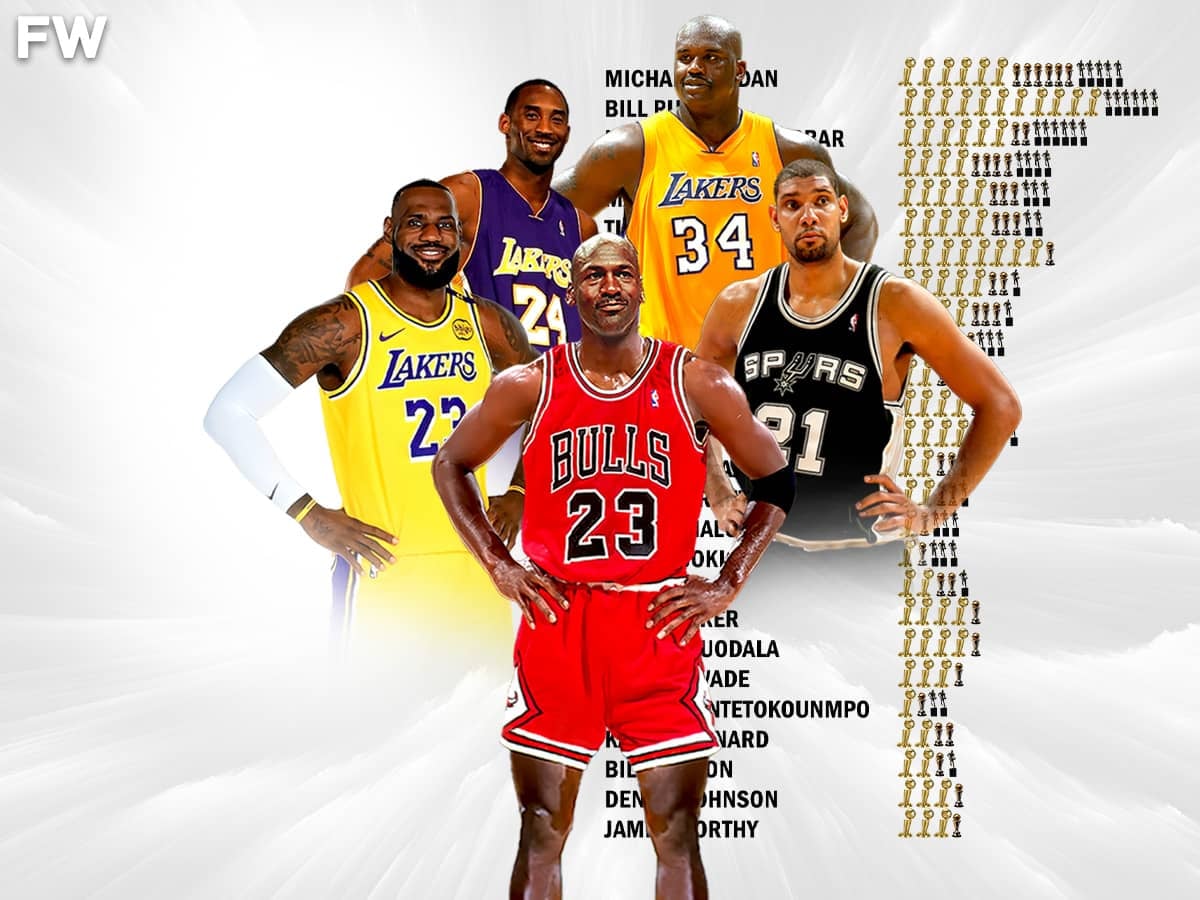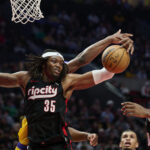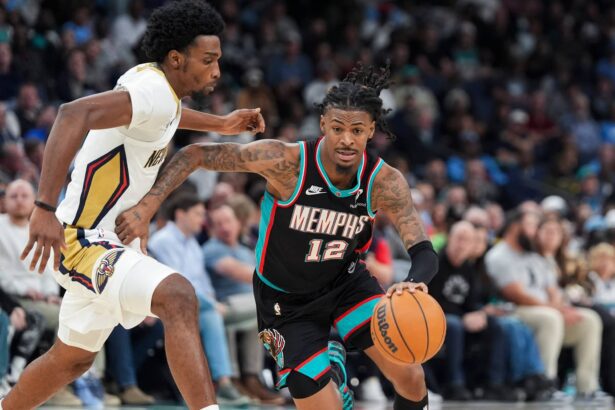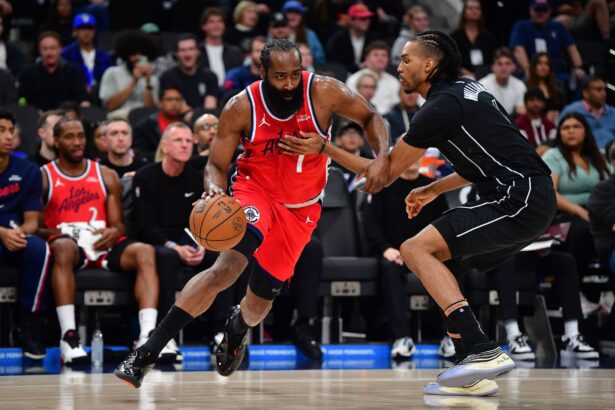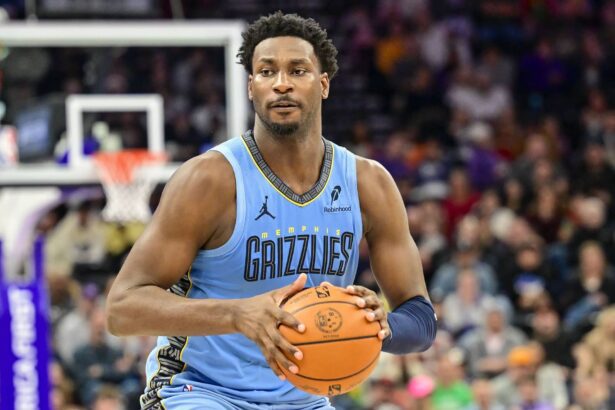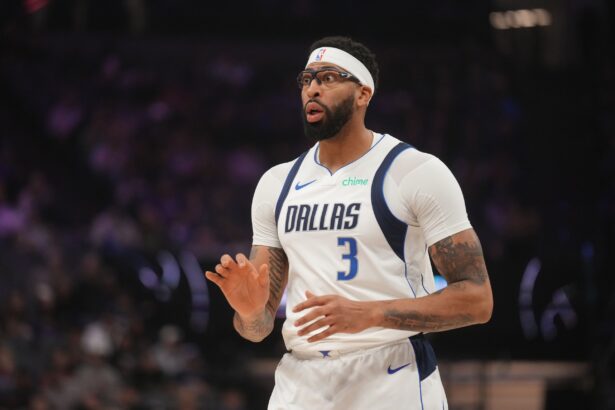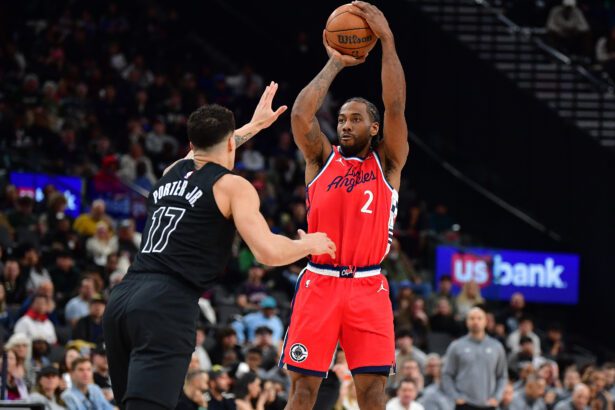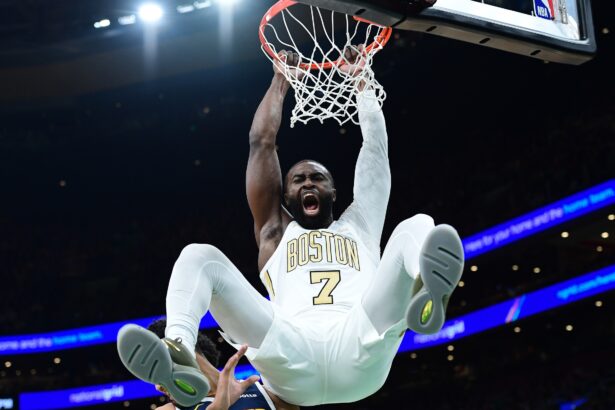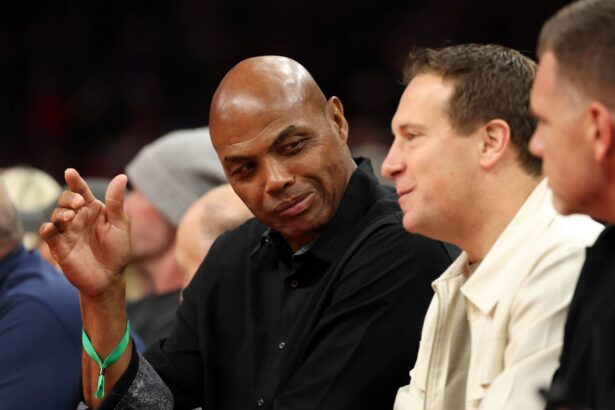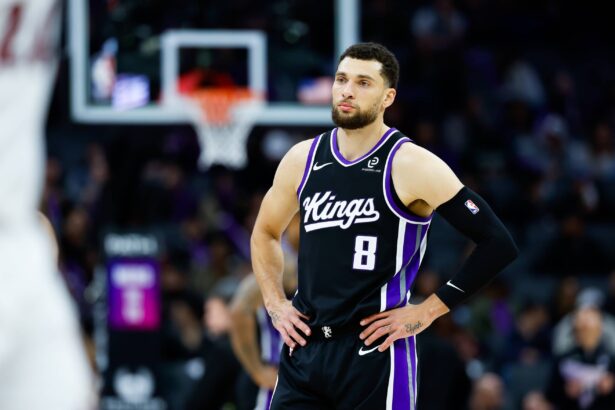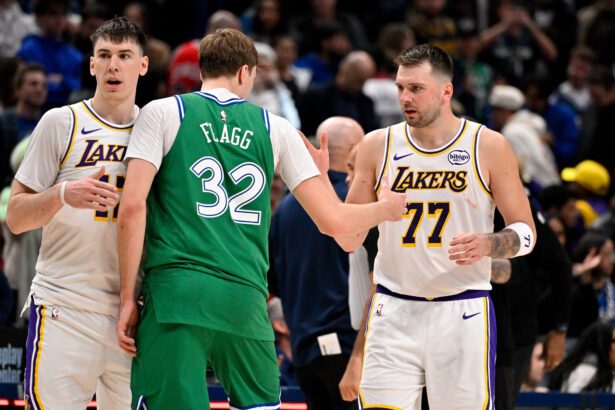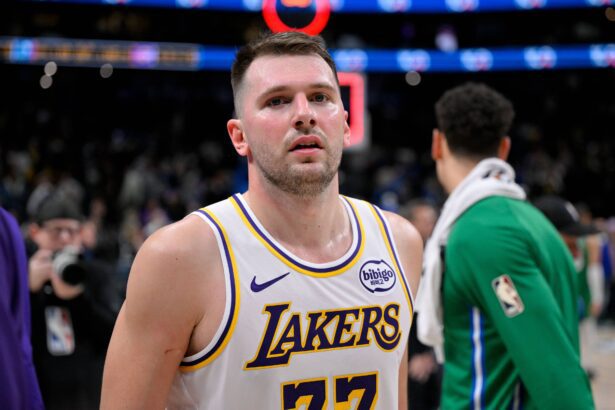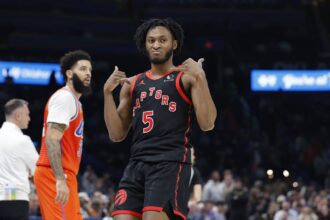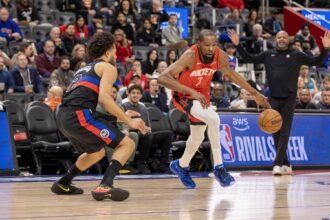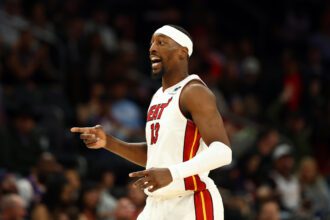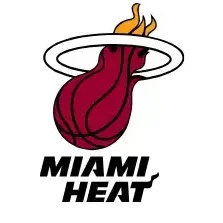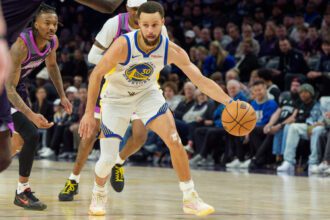NBA glory is often defined by rings and accolades, but the elite group of legends is the one that not only hoisted the Larry O’Brien Trophy but also earned regular-season and/or Finals MVP hardware. This list spotlights the players who have achieved that rare dual distinction: each one is a champion and has been named an NBA MVP or Finals MVP at least once in their career.
- 1. Michael Jordan – 17
- 2. Bill Russell – 16
- 3. Kareem Abdul-Jabbar – 14
- 4. LeBron James – 12
- 5. Magic Johnson – 11
- 6. Tim Duncan – 10
- 7. John Havlicek – 9
- T8. Kobe Bryant – 8
- T8. Shaquille O’Neal – 8
- T8. Larry Bird – 8
- T9. Wilt Chamberlain – 7
- T9. Stephen Curry – 7
- T9. Bob Cousy – 7
- T10. Hakeem Olajuwon – 5
- T10. Kevin Durant – 5
- T10. Moses Malone – 5
- T10. Nikola Jokic – 5
- T10. Willis Reed – 5
- T10. Tony Parker – 5
- T10. Andre Iguodala – 5
- T11. Dwyane Wade – 4
- T11. Giannis Antetokounmpo – 4
- T11. Kawhi Leonard – 4
- T11. Bill Walton – 4
- T11. Dennis Johnson – 4
- T11. James Worthy – 4
- Other NBA Players With Most Combined Rings, MVPs, And Finals MVPs
These players span the eras, from Wilt Chamberlain (2 rings, 4 MVPs, 1 Finals MVP) and Willis Reed (2 rings, MVP, 2 Finals MVPs) to icons like Kareem Abdul-Jabbar, Magic Johnson, Larry Bird, Michael Jordan, Shaquille O’Neal, Tim Duncan, and LeBron James, all of whom boast multiple championships and MVPs in at least one category.
Whether the icons from the 1960s or modern phenoms rewriting the record books, these players illustrate how transcendent talent meets championship excellence. Let’s dive in.
Note: We are only counting the players who have won at least one NBA championship and captured at least one MVP or Finals MVP award.
1. Michael Jordan – 17
NBA Rings: 6 (1991, 1992, 1993, 1996, 1997, 1998)
Finals MVP Awards: 6 (1991, 1992, 1993, 1996, 1997, 1998)
NBA MVP Awards: 5 (1988, 1991, 1992, 1996, 1998)
Michael Jordan is the GOAT by most measurements, and this is yet another notch on his belt. For starters, his Finals story is truly inspiring, starting with his first championship in 1991, finally eclipsing the era of Magic/Bird dominance. That year, he swept Finals MVP honors while leading the Chicago Bulls past the Los Angeles Lakers in five games, a statement victory that vindicated his relentless pursuit of legitimacy.
What followed were two separate three-peats (1991-93, 1996-98), during which Jordan achieved the unprecedented feat of being both regular-season and Finals MVP in four seasons. His iconic “Flu Game” performance in Game 5 of the 1997 Finals, playing sick yet scoring 38 points, is now immortalized as one of sport’s greatest individual displays.
Jordan’s five regular-season MVP Awards (1988, ’91, ’92, ’96, ’98) underscore his dominance across eras, bridging the mid-80s through the late 90s, while his six Finals MVPs make him the only player in NBA history to win the award twice in back-to-back three-peats. Each Finals trophy tells a story of conquest, proving his claim as the greatest there ever was.
2. Bill Russell – 16
NBA Rings: 11 (1957, 1959, 1960, 1961, 1962, 1963, 1964, 1965, 1966, 1968, 1969)
Finals MVP Awards: 0 (*Award began in 1969)
NBA MVP Awards: 5 (1958, 1961, 1962, 1963, 1965)
Bill Russell’s career is synonymous with being the greatest winner ever, not just for his championship tallies, but for his revolutionary impact on defense and leadership. Over 13 seasons, Russell guided the Celtics to an astounding eleven titles, including eight straight from 1959-66.
Despite the fact that the Finals MVP award didn’t exist until 1969, today his stat line of 29.5 rebounds per game in Finals appearances and clutch performances in Game 7s paints the picture of a Finals-caliber performer. His five regular-season MVPs (1958, 1961-63, 1965) further cement his reputation as the dominant force of the Celtics dynasty.
In many ways, the naming of the Finals MVP trophy after him is both ironic and fitting: ironic because he never officially received the award, and fitting because his Finals dominance is clearly evident. With 16 total trophies, Russell might be the only player to ever come close to Jordan.
3. Kareem Abdul-Jabbar – 14
NBA Rings: 6 (1971, 1980, 1982, 1985, 1987, 1988)
Finals MVP Awards: 2 (1985, 1987)
NBA MVP Awards: 6 (1971, 1972, 1974, 1976, 1977, 1980)
Right behind the GOAT and the greatest champion of all-time is the “original GOAT”, the center with an impressive 14 total trophies. At age 38, Kareem Abdul-Jabbar rewrote what it meant to peak late, leading the 1985 Lakers past the red-hot Boston Celtics to claim his second Finals MVP, making him the oldest Finals MVP in NBA history. After a humbling 38-point drubbing in Game 1 (the “Memorial Day Massacre”), Kareem famously sat up front during film sessions, internalized the shame, and bounced back with a dominating performance: 30 points, 17 rebounds, 8 assists, 3 blocks in Game 2 alone.
Kareem’s legacy goes well beyond that one series. He earned six regular-season MVPs (1971, ’72, ’74, ’76, ’77, ’80), the most in league history, and won two Finals MVPs (1971 as Lew Alcindor, and 1985).
His resilience, defying age and the Celtics’ elite, epitomizes his “Skyhook” style: graceful, long-lasting, and indefinable. The 1985 Finals wasn’t just a victory; it was a testament to Kareem’s enduring greatness and adaptability in a shifting basketball landscape.
4. LeBron James – 12
NBA Rings: 4 (2012, 2013, 2016, 2020)
Finals MVP Awards: 4 (2012, 2013, 2016, 2020)
NBA MVP Awards: 4 (2009, 2010, 2012, 2013)
LeBron James has solidified his legacy as one of the NBA’s most accomplished players, with four NBA championships, four MVP awards, and four Finals MVPs. His greatest achievement came with the Cleveland Cavaliers, where he led the team to its first-ever NBA title in 2016, overcoming a 3-1 deficit against the Golden State Warriors.
This victory not only ended Cleveland’s sports championship drought but also earned LeBron his third Finals MVP award. Earlier in his career, he secured two championships with the Miami Heat in 2012 and 2013, both times earning Finals MVP honors. In 2020, LeBron added a fourth championship with the Los Angeles Lakers, once again being named Finals MVP.
Beyond his Finals success, LeBron has been a four-time NBA MVP (2009, 2010, 2012, 2013), showcasing his dominance during the regular season. His accolades extend beyond the court; in 2023, he became the NBA’s all-time leading scorer, surpassing Kareem Abdul-Jabbar.
5. Magic Johnson – 11
NBA Rings: 5 (1980, 1982, 1985, 1987, 1988)
Finals MVP Awards: 3 (1980, 1982, 1987)
NBA MVP Awards: 3 (1987, 1989, 1990)
Magic Johnson’s impact on the NBA is immeasurable, with five NBA championships, three MVP awards, and three Finals MVPs for a total of 11 trophies. Drafted first overall by the Los Angeles Lakers in 1979, Magic quickly became the face of an iconic franchise that would only become more renowned.
In his rookie season, he led the Lakers to the NBA title and was named Finals MVP, making him the only rookie in NBA history to receive this honor. Over the next decade, Magic guided the Lakers to four more championships, earning Finals MVP honors in 1982 and 1987.
His unique blend of size, skill, and vision revolutionized the point guard position and defined the “Showtime” era of Lakers basketball. Magic’s excellence wasn’t confined to the postseason; he was a three-time NBA MVP (1987, 1989, 1990), recognized for his leadership and performance during the regular season just as much as his performances in the postseason.
6. Tim Duncan – 10
NBA Rings: 5 (1999, 2003, 2005, 2007, 2014)
Finals MVP Awards: 3 (1999, 2003, 2005)
NBA MVP Awards: 2 (2002, 2003)
When Tim Duncan led the San Antonio Spurs to the 1999 NBA title, it wasn’t just a debut ring; it was the dawn of a dynasty. As a sophomore, Duncan was already Finals MVP, one of only three players ever to capture the award in their second season, joining Kareem and Magic before him.
Obviously, he would retire with 10 total awards, a truly impressive feat. Game 6 of the 2003 Finals stands out: down late, Duncan spearheaded a 19-0 run, delivering a near quadruple-double (21 points, 20 rebounds, 10 assists, 8 blocks) and clinching both the championship and Finals MVP, his second.
His consistency capped an era: five titles (1999, 2003, 2005, 2007, 2014), three Finals MVPs (1999, 2003, 2005), and two regular-season MVPs (2002, 2003) underscore a career built on quiet dominance. No doubt, Duncan is the greatest power forward ever because he just owned both ends of the court almost every single season of his 19-year career.
7. John Havlicek – 9
NBA Rings: 8 (1963, 1964, 1965, 66, 1968, 1969, 1974, 1976)
Finals MVP Awards: 1 (1974)
NBA MVP Awards: 0
By 1976, John Havlicek had cemented himself as the ultimate Finals performer because he had eight rings and a Finals MVP trophy for a total of nine awards. Over eight Finals series (all victories), he averaged 21.7 points, 7.4 rebounds, and 4.1 assists across 47 games, including a legendary 26.4 PPG over seven games in the 1974 Finals alone, earning him Finals MVP honors and launching his post-Bill Russell legacy with a star-making performance against Milwaukee.
His clutch presence was rooted deep: the iconic “Havlicek stole the ball!” buzzer-beater in the 1965 Eastern Finals remained in Celtics lore, cementing his reputation as an all-time big-game hero. It eventually ended with an NBA title.
He played 16 seasons, all with Boston, earning 13 All-Star nods, eight rings, and serving as team captain from 1969 to 1978. His Finals MVP was no fluke, either, and it was the crescendo of a career defined by consistency and underrated impact during his time.
T8. Kobe Bryant – 8
NBA Rings: 5 (2000, 2001, 2002, 2009, 2010)
Finals MVP Awards: 2 (2009, 2010)
NBA MVP Awards: 1 (2008)
Kobe Bryant has to be the greatest player, in terms of talent, who captured exactly eight total awards. The 2009 NBA Finals run felt like his personal vindication. After Shaquille O’Neal’s departure, Kobe became the undisputed leader of the Lakers. Against Orlando in 2009, he unleashed a dominant performance, averaging 32.4 points, 5.6 rebounds, and 7.4 assists en route to earning his first Finals MVP.
Game 1 alone set the tone, with Kobe dropping 40 points to open the series and announcing that these Lakers were his team now. This victory not only reclaimed championship glory for L.A. but also solidified Kobe’s identity as a “clutch closer,” transcending the shadow of his former teammate.
Kobe doubled down on his Finals dominance in 2010, battling the storied Boston Celtics in a grueling seven-game war. He averaged 28.6 points, eight rebounds, and nearly four assists, claiming his second consecutive Finals MVP and sending a powerful message: his legacy transcended flash and scoring; it rested on resilience and will.
T8. Shaquille O’Neal – 8
NBA Rings: 4 (2000, 2001, 2002, 2006)
Finals MVP Awards: 3 (2000, 2001, 2002)
NBA MVP Awards: 1 (2000)
From the moment Shaquille O’Neal landed in Los Angeles, he transformed the Lakers into an unstoppable force, and he retired with eight total awards. In 2000, he seized the regular-season MVP before steamrolling through the Finals, averaging a staggering 38.0 PPG and 16.7 RPG en route to a dominant Finals MVP performance versus the Pacers, the first of an unprecedented three-peat (2000-2002).
Across those three years, O’Neal consistently terrorized opponents, averaging roughly 36-38 points in each Finals and claiming a trio of Finals MVP awards; only he and Michael Jordan have ever achieved that feat. But Shaq was more than just a physically dominant inside presence; he became the consummate Finals performer.
In the 2001 Finals, he delivered 33 PPG and 15.8 RPG against the 76ers, including a legendary 28/20/9/8 stat line in Game 2. His supreme Finals dominance continued in 2002, where he averaged 36.3 points on 59.5% shooting across the series, including a 41-point, 17-rebound performance in Game 6 versus the Kings.
Shaq’s combination of peak regular-season form and sustained Finals ferocity etched him among the NBA’s elite, a center unlike any before or at least since a prime Wilt Chamberlain.
T8. Larry Bird – 8
NBA Rings: 3 (1981, 1984, 1986)
Finals MVP Awards: 2 (1984, 1986)
NBA MVP Awards: 3 (1984, 1985, 1986)
Larry Bird’s Finals performances stand as testaments to his all-around mastery and ice-cold confidence, as he is tied for 8th place with eight awards. In the 1984 Finals, Bird averaged a dominant 27.4 PPG and 14 RPG in a dramatic seven-game series versus the Lakers, earning his first Finals MVP and leading Boston back to the mountaintop after years at the hands of L.A.
By 1986, at the peak of his powers, Bird posted back-to-back triple-doubles and averaged 24/9.7/9.5 in the Finals against Houston, leading a Celtics squad often considered among the greatest ever and earning a second Finals MVP. That victory also anchored Bird’s string of three consecutive regular-season MVPs (1984-86) and showcased his unique ability to dominate across scoring, playmaking, and leadership.
T9. Wilt Chamberlain – 7
NBA Rings: 2 (1967, 1972)
Finals MVP Awards: 1 (1972)
NBA MVP Awards: 4 (1960, 1966, 1967, 1968)
Over his illustrious career, Wilt secured two NBA championships, one with the Philadelphia 76ers in 1967 and another with the Los Angeles Lakers in 1972. That took his total count of awards to seven, one behind Larry Bird.
In the 1967 Finals, in particular, Chamberlain’s performance was nothing short of extraordinary. He averaged 28.5 rebounds, 17.7 points, and 6.8 assists per game, leading the 76ers to a 4-2 series victory over the San Francisco Warriors. Although the Finals MVP award was not introduced until 1969, Chamberlain’s dominance during this series was widely acknowledged.
Chamberlain’s second championship came in 1972 with the Los Angeles Lakers. This victory was particularly significant as it marked the Lakers’ first title since relocating to Los Angeles. Chamberlain’s contributions were pivotal throughout the series, and he was subsequently named the 1972 NBA Finals MVP.
Beyond his championships, Chamberlain’s individual accolades are equally impressive. He was a four-time NBA MVP (1960, 1966-1968), a 13-time NBA All-Star, and a 7-time scoring champion. His career averages of 30.1 points and 22.9 rebounds per game remain unmatched, solidifying his legacy as one of the greatest to ever play the game.
T9. Stephen Curry – 7
NBA Rings: 4 (2015, 2017, 2018, 2022)
Finals MVP Awards: 1 (2022)
NBA MVP Awards: 2 (2015, 2016)
Stephen Curry’s 2022 Finals performance was the missing chapter in his legendary career, and it also pushed his total trophies to seven. Despite already being a two-time regular-season MVP (2015 and the unanimous 2016 conquest), Curry had long been shadowed by teammates when it came to Finals hardware. Andre Iguodala claimed the 2015 Finals MVP, and Kevin Durant the next two.
But in 2022, Curry took full control. He averaged 31.2 points, 6 rebounds, and 5 assists in the series, including a career-defining 43-point barrage in Game 4, earning him selection as Finals MVP, finally securing the Bill Russell trophy that had eluded him.
This mantle of Finals dominance only cemented the legacy Curry had already begun forging. By delivering his first NBA Finals MVP at age 34 on the Celtics’ parquet, he silenced critics and declared himself unquestionably the face of his era. With four championships (2015, 2017, 2018, 2022) and two regular-season MVPs, Curry’s resume is clearly one of the most impressive of his time.
T9. Bob Cousy – 7
NBA Rings: 6 (1957, 1959, 1960, 1961, 1962, 1963)
Finals MVP Awards: 0 (*Award began in 1969)
NBA MVP Awards: 1 (1957)
With a total of seven combined awards, Bob Cousy’s 1957 season stands as a foundational moment in NBA history. That year, he led the Celtics to their first-ever championship alongside rookie Bill Russell, earning league MVP honors in the process.
His electrifying playmaking helped power Boston past the St. Louis Hawks in a grueling seven-game Finals, spotlighting Cousy’s ability to orchestrate high-stakes offense long before the Finals MVP existed. Cousy’s impact extended beyond that initial title run: he captured a total of six rings from 1957 to 1963 and dominated the stat sheet, leading the NBA in assists for eight straight seasons.
Inspired by his 1957 MVP and consistent All-Star performances, including All-Star Game MVP nods in 1954 and 1957, he fundamentally reshaped the point guard role.
T10. Hakeem Olajuwon – 5
NBA Rings: 2 (1994, 1995)
Finals MVP Awards: 2 (1994, 1995)
NBA MVP Awards: 1 (1994)
In 1994, Hakeem Olajuwon delivered a masterpiece: he became the only player ever to win MVP, Defensive Player of the Year, Finals MVP, and the NBA Championship in a single season. His Finals performance was otherworldly, averaging 26.9 points, 9.1 rebounds, and 3.6 assists per game, including the iconic Game 6 block on John Starks that propelled Houston to a Game 7 and legendary status.
That block remains one of the most replayed sequences in Finals lore, emblematic of Olajuwon’s clutch DNA. He doubled down in 1995: bolstered by Clyde Drexler, he led the Rockets to the first-ever repeat title as a 6th seed under the banner “Clutch City”.
Olajuwon again was Finals MVP, averaging 32.8 points and 11.5 rebounds, all while proving to David Robinson, Patrick Ewing, and a host of legends that he was the preeminent center of his generation in head-to-head matchups.
T10. Kevin Durant – 5
NBA Rings: 2 (2017, 2018)
Finals MVP Awards: 2 (2017, 2018)
NBA MVP Awards: 1 (2014)
After leaving OKC, Kevin Durant brought his MVP-level talent to Golden State, and it paid immediate dividends. In 2017, Durant earned Finals MVP in his first Warriors Finals run, averaging 35.2 points, 8.2 rebounds, and 5.4 assists, boosted by a highlight-reel 31-footer over LeBron in Game 3.
He followed it up in 2018 with another Finals MVP, posting a 43-point, 13-rebound eruption in Game 3 that reminded everyone why he’s a lethal closer. Durant’s back-to-back Finals MVPs cemented his legacy as one of the few dominant two-way scorers in league history.
Critics who questioned him for joining an already-stacked roster were silenced; his Finals performances spoke louder than conversations about fit. Durant finished both series as his team’s top scorer every single game, ushering in Golden State’s second era of dominance. We also can’t forget about Durant’s 2014 MVP season when he posted 32.0 PPG, 7.4 RPG, and 5.5 APG.
T10. Moses Malone – 5
NBA Rings: 1 (1983)
Finals MVP Awards: 1 (1983)
NBA MVP Awards: 3 (1979, 1982, 1983)
Moses Malone’s 1983 campaign stands as one of the most dominant seasons in league history. After being absorbed into Philadelphia’s powerhouse post-ABA merger squad, Malone famously predicted they’d go “Fo’ Fo’ Fo’” (three sweeps), a prophecy nearly fulfilled: the 76ers went 12-1 in the playoffs and steamrolled the Lakers in the Finals to cap an emphatic title run.
A ferocious rebounder and low-post force, Malone averaged 25.8 PPG and 18.0 RPG during that Finals sweep and earned both NBA MVP and Finals MVP honors, joining Willis Reed and Kareem Abdul-Jabbar in that honor at the time (later joined by Moses Malone, Larry Bird, Magic Johnson, Michael Jordan, Hakeem Olajuwon, Shaquille O’Neal, Tim Duncan, LeBron James, and Shai Gilgeous-Alexander).
While his 1983 peak defined Malone’s legacy, his dominance was years in the making. He captured three league MVPs (1979, 1982, 1983), led the league in rebounding six times, and revolutionized the art of positioning and offensive boards. We also believe that Malone is one of the underrated pillars of NBA greatness.
T10. Nikola Jokic – 5
NBA Rings: 1 (2023)
Finals MVP Awards: 1 (2023)
NBA MVP Awards: 3 (2021, 2022, 2024)
Nikola Jokic’s ascent to NBA stardom has been marked by a series of remarkable achievements, culminating in his 2023 NBA championship and Finals MVP award. In the 2023 NBA Finals, Jokic delivered an outstanding performance, averaging 30.2 points, 14 rebounds, and 7.2 assists per game, leading the Denver Nuggets to their first-ever NBA title.
His exceptional play earned him the Finals MVP, solidifying his status as one of the league’s premier talents. Beyond his Finals success, Jokic has been a dominant force in the regular season, securing the NBA MVP award three times (2021, 2022, 2024).
In the 2024 season, he continued to showcase his versatility and skill, averaging 26.4 points, 12.4 rebounds, and 9.0 assists per game. His ability to impact the game in multiple facets has made him a perennial MVP candidate and a cornerstone for the Nuggets franchise.
T10. Willis Reed – 5
NBA Rings: 2 (1970, 1973)
Finals MVP Awards: 2 (1970, 1973)
NBA MVP Awards: 1 (1970)
Willis Reed’s legacy in the NBA is defined by his leadership and resilience, particularly during the New York Knicks’ championship runs in 1970 and 1973. In the 1970 NBA Finals, Reed delivered a legendary performance, averaging 23.0 points and 10.5 rebounds per game.
His most iconic moment came in Game 7, where, despite a severe thigh injury that had kept him sidelined for Game 6, Reed returned to the court and inspired his team to victory. His determination and grit were instrumental in the Knicks securing their first NBA championship.
Reed’s contributions were not limited to the 1970 season. In 1973, he led the Knicks to their second NBA title, earning Finals MVP honors once again. Throughout his career, Reed was also an MVP award winner, capturing it in 1969-70 by averaging 21.7 PPG and 13.9 RPG.
T10. Tony Parker – 5
NBA Rings: 4 (2003, 2005, 2007, 2014)
Finals MVP Awards: 1 (2007)
NBA MVP Awards: 0
In the 2007 NBA Finals, All-Star (but not an MVP-quality player during the regular season) Tony Parker emerged as the face of San Antonio’s offense in a stunning 4-0 sweep of a LeBron James-led Cavaliers squad. As the first European-born Finals MVP, Parker averaged 24.5 points, 5.0 rebounds, and 3.3 assists while shooting 56.8% from the field, delivering consistent brilliance across all four games.
Game 4 saw him drop 24 points to seal the Spurs’ victory, legitimizing both his scoring acumen and leadership under pressure. Parker’s Finals MVP wasn’t just about numbers; it was a culmination of his growth from a supporting role to the star closer. Teammate Tim Duncan said, “You just saw it … he was gonna get it done,” highlighting how Parker seized the moment when opportunity knocked.
In a series overshadowed by his superstar teammates, Parker’s backcourt performance symbolized the Spurs’ cohesive ethos, smart, selfless, and offensively impeccable under Gregg Popovich’s system.
T10. Andre Iguodala – 5
NBA Rings: 4 (2015, 2017, 2018, 2022)
Finals MVP Awards: 1 (2015)
NBA MVP Awards: 0
After being swung into the starting lineup in Game 4 of the 2015 Finals, Andre Iguodala flipped the Golden State-Cleveland series on its head. Tasked with defending LeBron James, he lowered LeBron’s shooting to 38.1%, while providing a versatile spark across the board, averaging 16.3 points, 5.8 rebounds, and 4.0 assists en route to Finals MVP honors.
His defensive tenacity, timely scoring, and basketball IQ earned him the distinction of being the first non-starter to win Finals MVP. Iguodala’s impact was more than just on-court; his selflessness and veteran leadership helped cement the Warriors’ culture during their rise.
Steve Kerr remarked that it was his proudest coaching moment when Iguodala earned MVP. Years later, as his No. 9 was retired, Curry noted that Iguodala “changed the course of our entire franchise,” a testament to the legacy that Finals run helped forge.
T11. Dwyane Wade – 4
NBA Rings: 3 (2006, 2012, 2013)
Finals MVP Awards: 1 (2006)
NBA MVP Awards: 0
Even without a regular-season MVP, Dwyane Wade’s 2006 Finals run remains one of basketball’s purest takeovers. After Miami fell behind 0-2, Wade responded with 42 points and 13 rebounds in Game 3, igniting the Heat’s momentum shift.
He led all scorers across the series, including 36 points in Game 6, carried the Heat to victory, and became the third-youngest Finals MVP in NBA history with a 34.7 points-per-game average and a record-setting 21 free throws made in Game 5. Wade’s leadership transformed the Heat and redefined Star Era Miami.
He embraced his role, leaning on free-throw line dominance while accruing steals and blocks in every contest. His place as Finals MVP, alongside Shaq’s embrace, told a story of emerging supremacy, determining franchise identity, and anointing a new NBA icon whose Finals brilliance remains a highlight reel staple.
T11. Giannis Antetokounmpo – 4
NBA Rings: 1 (2021)
Finals MVP Awards: 1 (2021)
NBA MVP Awards: 2 (2019, 2020)
In Game 6 of the 2021 NBA Finals, Giannis Antetokounmpo delivered a signature performance for the ages: 50 points, 14 rebounds, and 5 blocks in a clutch 105-98 win that broke Milwaukee’s 50-year title drought. That 50-point night tied a Finals record for most points in a closeout game and made Giannis just the third player, joining Shaq and Jordan, to post consecutive 40-point, 10-rebound games in Finals history.
His dominance didn’t drop off in crunch time: scoring 33 of those points in the second half and drilling 17 of 19 free throws, he sealed the trophy with poise and unmatched physicality.
This performance earned him Finals MVP, adding a Finals trophy to complement his two regular-season MVPs (2019, 2020) and Defensive Player of the Year honors, joining the elite company of Jordan and Olajuwon as the only players to hold all three awards in a career.
T11. Kawhi Leonard – 4
NBA Rings: 2 (2014, 2019)
Finals MVP Awards: 2 (2014, 2019)
NBA MVP Awards: 0
Despite never winning a regular-season MVP award, Kawhi Leonard first introduced himself in the Finals spotlight in 2014 with the Spurs. Despite being only 22, he averaged 17.8 PPG on an astonishing 61.2 % shooting and held LeBron James under control, earning Finals MVP and becoming the third-youngest winner ever.
His defensive resilience and efficient scoring proved crucial as San Antonio claimed a dominant 4-1 series, highlighting the perimeter threat rarely seen from a big-time closer. Kawhi’s second Finals MVP came in 2019, after guiding the Raptors to their first NBA title.
He averaged 28.5 points, 9.8 rebounds, 4.2 assists, and 2.0 blocks per game, executing on both ends of the floor with surgical precision and joining Kareem and LeBron as the only players to win Finals MVPs with multiple franchises. From game-winning shots to consistent dominance, Kawhi’s transcendent run in Toronto solidified his reputation as the NBA’s premier two-way superstar.
T11. Bill Walton – 4
NBA Rings: 2 (1977, 1986)
Finals MVP Awards: 1 (1977)
NBA MVP Awards: 1 (1978)
Bill Walton’s ascent during the 1976-77 season radiated with the promise of something special. As the anchor of the Portland Trail Blazers, he averaged 18.6 points, a league-leading 14.4 rebounds, 3.8 assists, and league-leading 3.2 blocks during the regular season, guiding Portland past juggernauts like the Lakers and Nuggets en route to the Finals.
In Game 6 of the Finals, Walton posted 20 points, 23 rebounds, 7 assists, and 8 blocks, earning Finals MVP honors and helping the underdog Blazers secure a 109-107 win that still resonates in Portland’s lore. Walton followed up by capturing the 1978 regular-season MVP award (18.9 PPG, 13.2 RPG), becoming one of the most complete big men of his era.
Despite chronic foot injuries, he later won a second championship (and Sixth Man Award) with Boston in 1986, completing a rare two-team title career. Regarded as a cultural force on and off the court, Walton is remembered as a transcendent talent whose prime was cut too short due to injury.
T11. Dennis Johnson – 4
NBA Rings: 3 (1979, 1984, 1986)
Finals MVP Awards: 1 (1979)
NBA MVP Awards: 0
Dennis Johnson’s 1979 playoffs marked a career-defining chapter. As a member of the Seattle SuperSonics, he averaged 22.6 points, 6.0 rebounds, along with 1.8 steals and 2.2 blocks per game, cementing his two-way reputation and earning Finals MVP honors, Seattle’s only player to ever do so.
His leadership and clutch performance helped push the Sonics past the Washington Bullets and claim their first and only NBA title in franchise history. The seeds of that triumph were sown in earlier battles: the year prior, Johnson suffered a tough Finals loss in 1978, only to return stronger and triumph a year later.
Renowned as one of the best defensive guards, DJ continued to anchor championship teams, later bringing his lock-down intensity and championship DNA to Boston, where he won two more titles.
T11. James Worthy – 4
NBA Rings: 3 (1985, 1987, 1988)
Finals MVP Awards: 1 (1988)
NBA MVP Awards: 0
James Worthy’s nickname, “Big Game James,” was earned violently in Game 7 of the 1988 Finals. Averaging 22.0 points, 7.4 rebounds, and 4.4 assists over the series, he exploded with a historic 36-point, 16-rebound, 10-assist triple-double in the decisive matchup, earning him Finals MVP and sealing the Lakers’ legacy.
It was the only triple-double of his Hall of Fame career, coming at the moment it mattered most. But this dominance wasn’t isolated to one night.
Worthy was an integral part of the Showtime era, delivering clutch playoff performances across three championships to support dominant teammates like Magic and Kareem. His Finals success, symbolized by that Game 7 masterpiece, colors every highlight clip, confirming his place as one of the Lakers’ all-time postseason heroes.
Other NBA Players With Most Combined Rings, MVPs, And Finals MVPs
Dirk Nowitzki – 3
Bob Pettit – 3
David Robinson – 3
Isiah Thomas – 3
Wes Unseld – 3
Dave Cowens – 3
Bob McAdoo – 3
Shai Gilgeous-Alexander – 3
Jo Jo White – 3
Joe Dumars – 3
Cedric Maxwell – 3

